Thalassemia management November was a challenging month at Indira Gandhi Institute of Child Health. Thanks to the 10 government holidays, we had tough time accommodating all the children for transfusions. Looking at the workload at the institute together with the institute we are in the process of getting a doctor exclusively for the thalassemia unit. We had a total of 238 patient visits with 304 transfusions. The turnaround time for blood was 3.5 hours and the average patient stay was 7.3 hours. 16% blood units in the month had to be organised from blood banks outside the institute because of the extended periods of shortage of blood which the blood bank experienced. 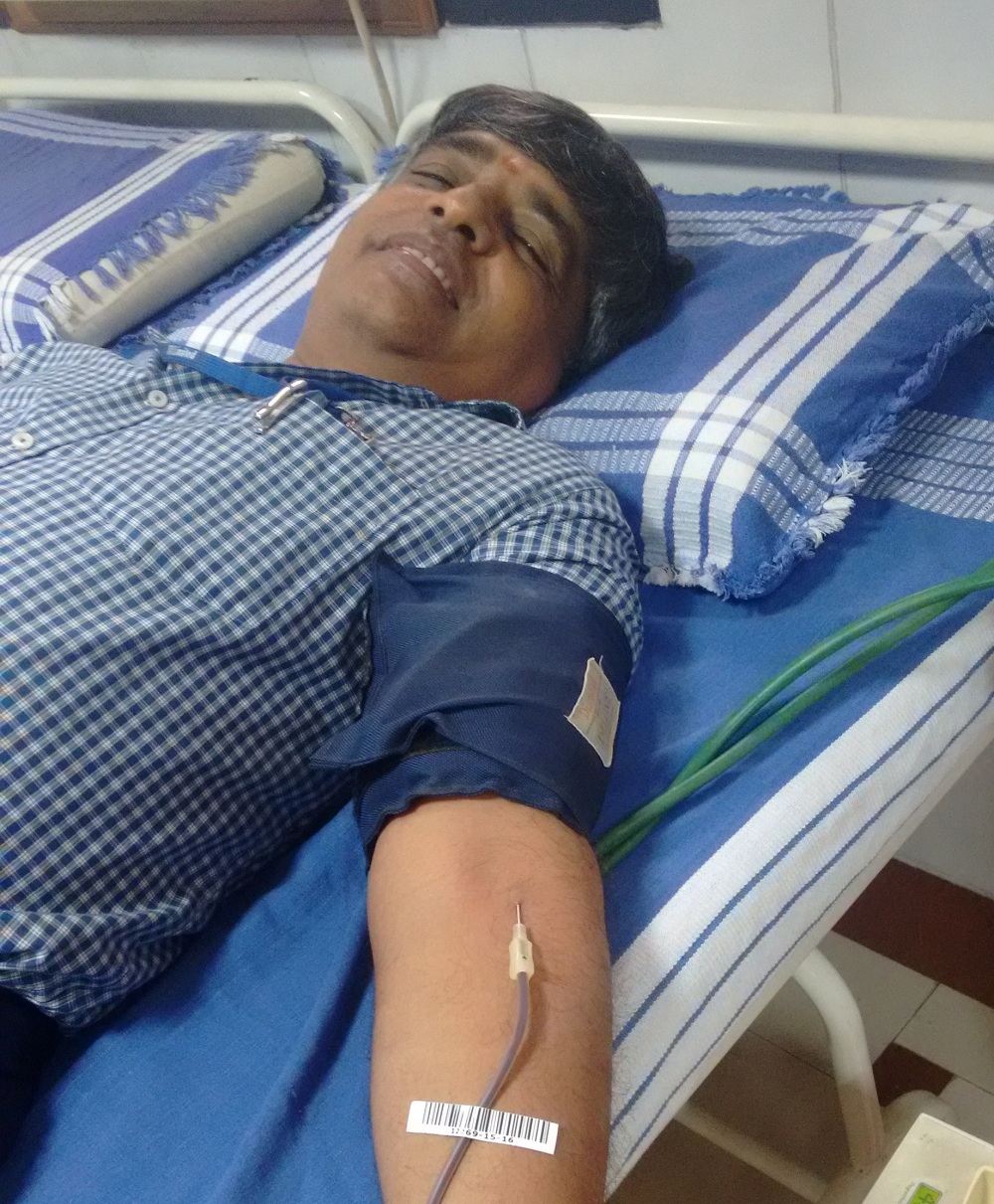 At Samraksha, things are getting busier as the unit shapes itself not just to take care of the thalassemia management related aspects but also the pre and post transplant activities. We had a total of 182 patient visits with 232 transfusions with blood processing in 3 hours and 6.5 hours of hospitalization. 40 children at Samraksha are on hydroxyurea therapy which requires weekly management and monitoring. A great day to visit Samraksha is Wednesday morning when all 10 kids who have completed their transplants come for their weekly check-up. The giggles, smiles and the playful mood is proof of the positive impact the transplants have had on their lives. Samraksha has also started keeping all the infusion pumps we had fully busy. We have waiting list for the children who want to start on Desferal therapy and we are in the process of acquiring more pumps. The one thing we are running out of most in Samraksha is space. In the months to come we foresee ourselves doing 20 transfusions a day beside all the other activity at the center.
At Samraksha, things are getting busier as the unit shapes itself not just to take care of the thalassemia management related aspects but also the pre and post transplant activities. We had a total of 182 patient visits with 232 transfusions with blood processing in 3 hours and 6.5 hours of hospitalization. 40 children at Samraksha are on hydroxyurea therapy which requires weekly management and monitoring. A great day to visit Samraksha is Wednesday morning when all 10 kids who have completed their transplants come for their weekly check-up. The giggles, smiles and the playful mood is proof of the positive impact the transplants have had on their lives. Samraksha has also started keeping all the infusion pumps we had fully busy. We have waiting list for the children who want to start on Desferal therapy and we are in the process of acquiring more pumps. The one thing we are running out of most in Samraksha is space. In the months to come we foresee ourselves doing 20 transfusions a day beside all the other activity at the center. 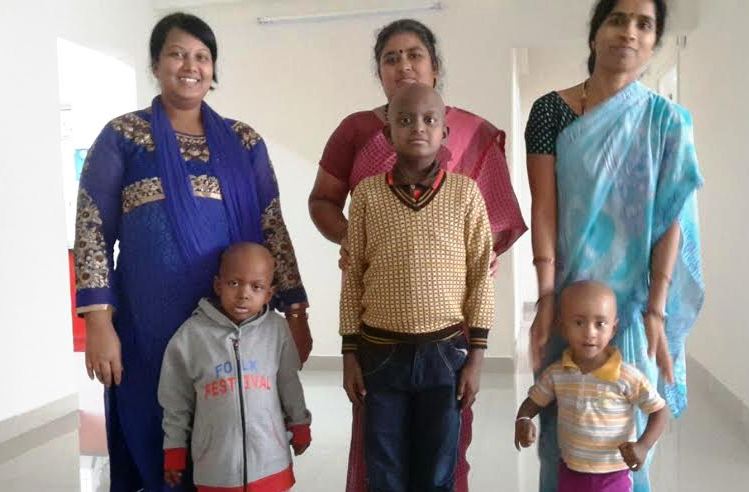 For all the children at our clinics we are close to completing the HLA typing. Now, most of those who have a match are being down staged for the transplant. Each child who returns after a successful transplant helps incite compliance in the families as they know that if maintained well, even their child may have an option of cure in future.
For all the children at our clinics we are close to completing the HLA typing. Now, most of those who have a match are being down staged for the transplant. Each child who returns after a successful transplant helps incite compliance in the families as they know that if maintained well, even their child may have an option of cure in future. 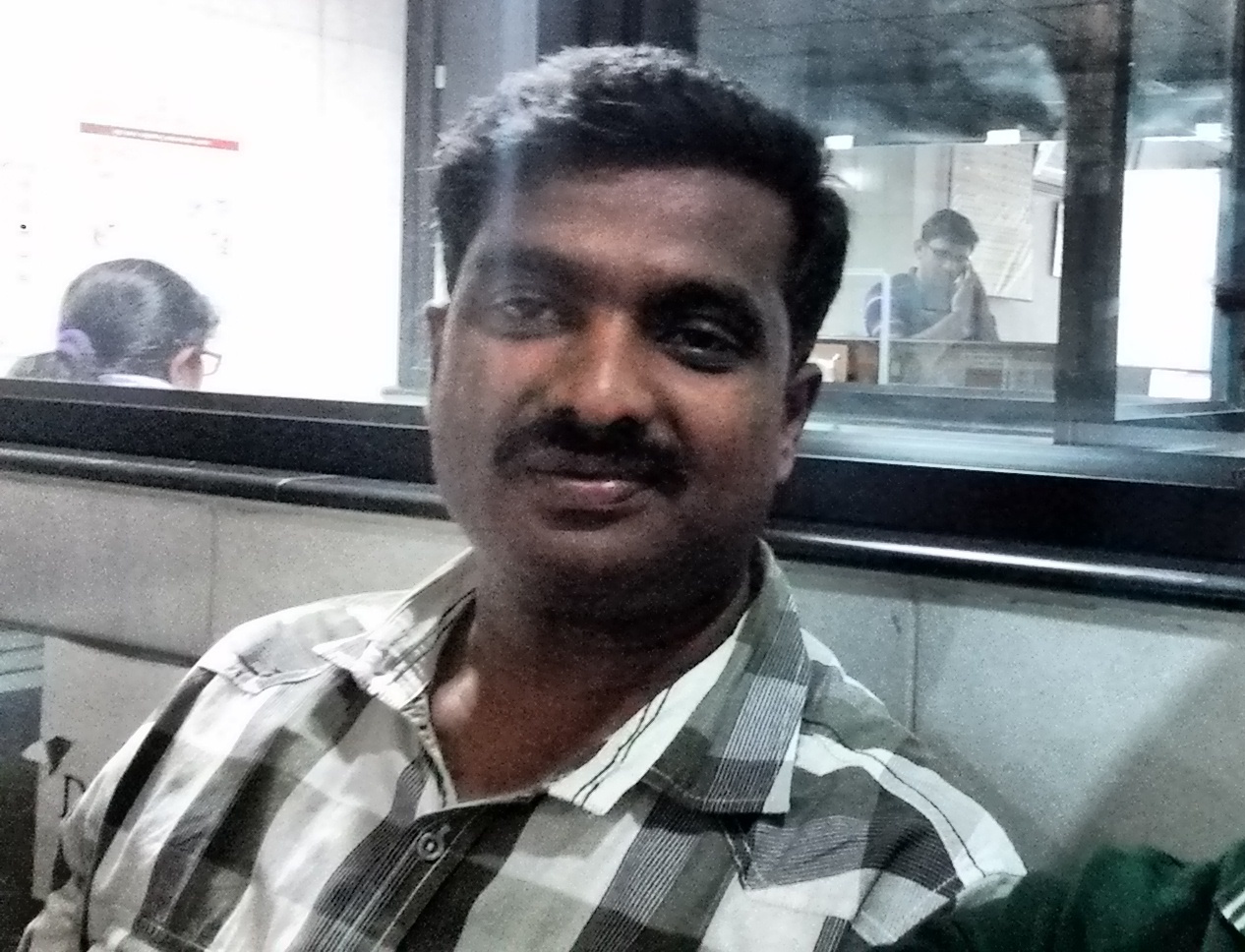 With new enrolments and also with increase in dose of chelators being given to some children, the need for chelation support has increased. We are looking for more angels to help with the chelation therapy. The blood helpline and the Emergency Team Last month we had 721 requests for blood from all over Karnataka of which 624 requests were from Bangalore alone. Other significant contributors were Bagalkot, Bijapur, Davangere, Dharwad, Haveri and Mysore. A third of these blood requests were for negative blood groups. We also had 6 Bombay blood group requests from Karnataka, Maharashtra, Odisha, Telangana and Tamil Nadu. We got 4 units of Bombay blood group donated and organised for another 6 units to take care of these Bombay blood group requests. With Rashtrotthana blood bank aiming at providing single donor platelets off the shelf. This has led to some requests for SDP which come from families who tend to be very nervous about availability being taken care of with ease. Though it’s just the beginning but we do aim at ensuring that donors for platelets (apheresis method)get to donate at their convenience rather than be rushed to the blood banks in emergency.
With new enrolments and also with increase in dose of chelators being given to some children, the need for chelation support has increased. We are looking for more angels to help with the chelation therapy. The blood helpline and the Emergency Team Last month we had 721 requests for blood from all over Karnataka of which 624 requests were from Bangalore alone. Other significant contributors were Bagalkot, Bijapur, Davangere, Dharwad, Haveri and Mysore. A third of these blood requests were for negative blood groups. We also had 6 Bombay blood group requests from Karnataka, Maharashtra, Odisha, Telangana and Tamil Nadu. We got 4 units of Bombay blood group donated and organised for another 6 units to take care of these Bombay blood group requests. With Rashtrotthana blood bank aiming at providing single donor platelets off the shelf. This has led to some requests for SDP which come from families who tend to be very nervous about availability being taken care of with ease. Though it’s just the beginning but we do aim at ensuring that donors for platelets (apheresis method)get to donate at their convenience rather than be rushed to the blood banks in emergency. 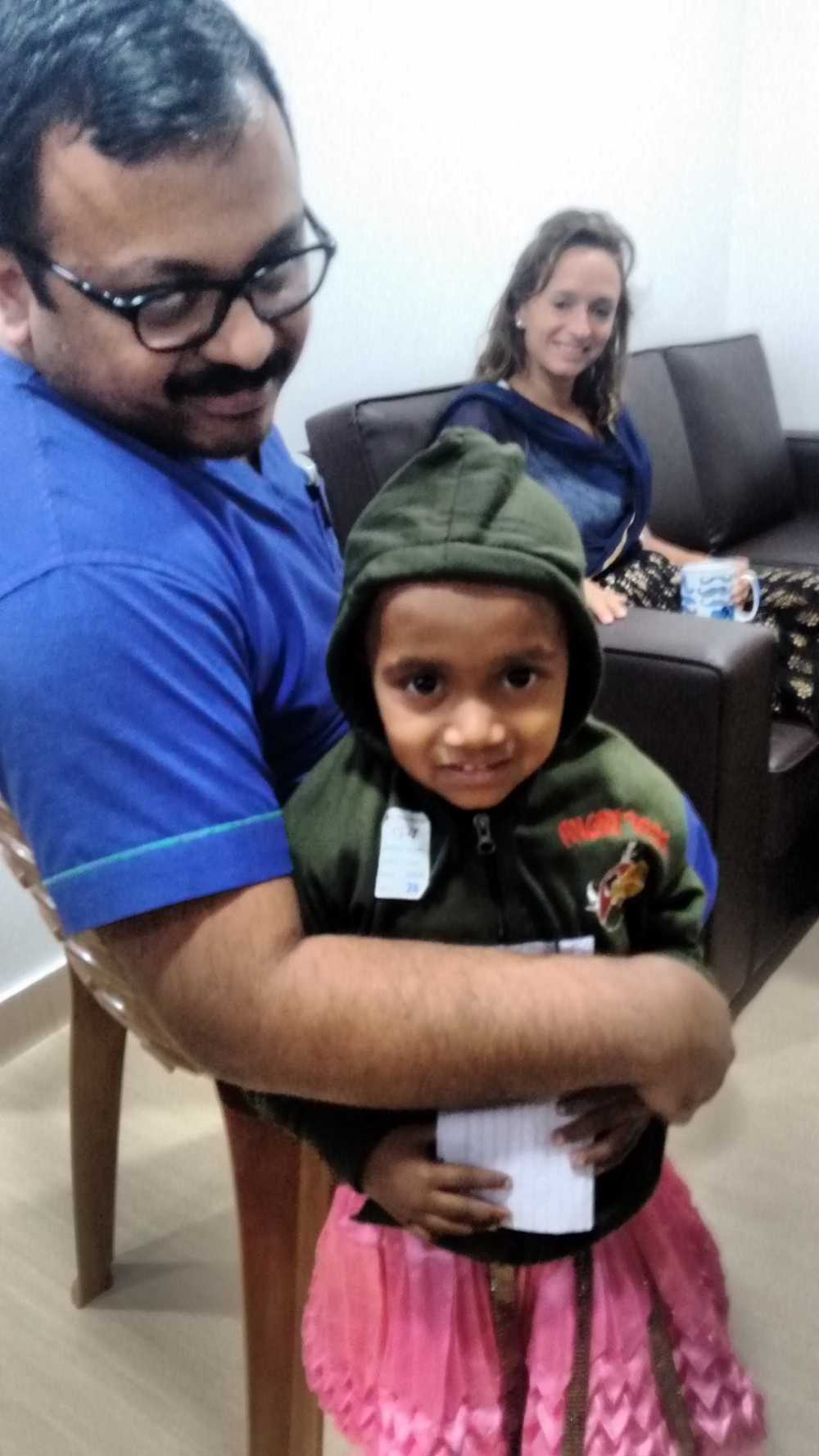 Rakta Kranti Blood donation drives are hard to come by in the months post Deepavali due to year end workload and closure activities in many organisations. Colleges too shy away from blood donation drives since the students' attention needs to be drawn towards examinations. The time between Diwali to Republic Day is quite testing. Our team too faced this problem. Yet, 15 blood donation drives were organised in November leading to a collection of 1081 units of blood from a total turnout of about 1380 donors. The average non compliance per camp was 2 / per camp and there was an adverse reaction for 2.95% of donors. 2 blood donation drives were organised by Bosch in their different locations across the city. The company now has been supporting the cause of voluntary blood donation regularly in every 6 months. The number of donations were a little less compared to last time, however the enthusiasm and support from the company has always been something positive to look forward to. 164 units of blood were collected in these drives.
Rakta Kranti Blood donation drives are hard to come by in the months post Deepavali due to year end workload and closure activities in many organisations. Colleges too shy away from blood donation drives since the students' attention needs to be drawn towards examinations. The time between Diwali to Republic Day is quite testing. Our team too faced this problem. Yet, 15 blood donation drives were organised in November leading to a collection of 1081 units of blood from a total turnout of about 1380 donors. The average non compliance per camp was 2 / per camp and there was an adverse reaction for 2.95% of donors. 2 blood donation drives were organised by Bosch in their different locations across the city. The company now has been supporting the cause of voluntary blood donation regularly in every 6 months. The number of donations were a little less compared to last time, however the enthusiasm and support from the company has always been something positive to look forward to. 164 units of blood were collected in these drives. 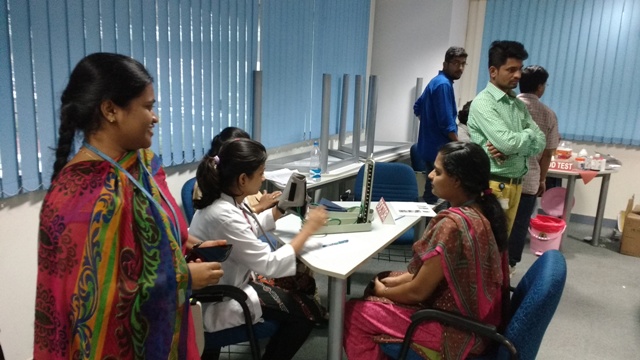 A 2 day drive was organised again at ITPB with support from Ascendas and Applied Materials. However, much to our surprise only 138 units of blood were collected over the 2 days leading the team to think of improved publicity measures from next drive on. However, support poured in from several donors who got in more people to donate after their donation. Yokogawa's centenary celebrations was marked with a blood donation drive at their Bangalore campus. Excellent support and ground work by company volunteers in involving people from all companies within the tech park and students from nearby colleges ensured that 200 donations happened in a little over 6 hours! Sankalp hopes that this drive gives them the impetus to plan for a drive every year from here on.
A 2 day drive was organised again at ITPB with support from Ascendas and Applied Materials. However, much to our surprise only 138 units of blood were collected over the 2 days leading the team to think of improved publicity measures from next drive on. However, support poured in from several donors who got in more people to donate after their donation. Yokogawa's centenary celebrations was marked with a blood donation drive at their Bangalore campus. Excellent support and ground work by company volunteers in involving people from all companies within the tech park and students from nearby colleges ensured that 200 donations happened in a little over 6 hours! Sankalp hopes that this drive gives them the impetus to plan for a drive every year from here on. 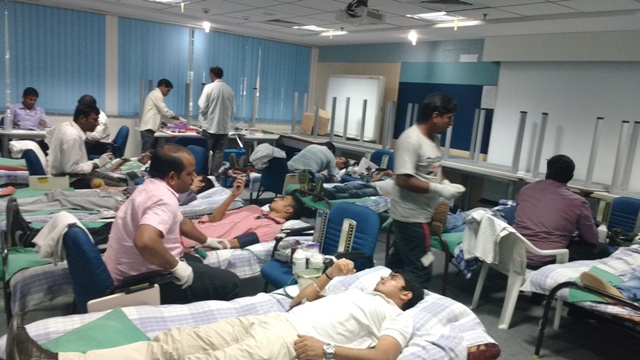 Qualcomm organised their second blood donation drive of the year in 2015. Due to a change in venue which was a little away from their main building, the turnout was a little less the drive was well organised by them. 76 units of blood were collected in this drive. FedEx organised 2 blood donation drives at their Nelamangala and Electronic City campuses. Excellent motivation by the senior members of the company ensured that more than 80% of the associates turned up at the blood donation drive creating a sort of record on thos front. 79 units were collected in both these drives put together.
Qualcomm organised their second blood donation drive of the year in 2015. Due to a change in venue which was a little away from their main building, the turnout was a little less the drive was well organised by them. 76 units of blood were collected in this drive. FedEx organised 2 blood donation drives at their Nelamangala and Electronic City campuses. Excellent motivation by the senior members of the company ensured that more than 80% of the associates turned up at the blood donation drive creating a sort of record on thos front. 79 units were collected in both these drives put together. 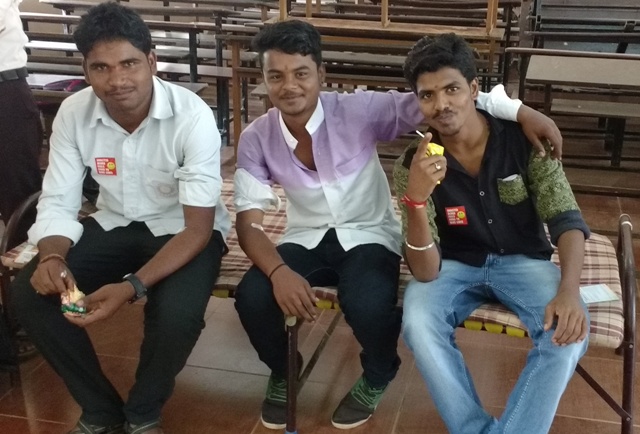 Drives at Capgemini, Brigade metropolis location was well organised and well published by the company. For the first time a 2 day drive was held here and there was a constant flow of donors wanting to donate blood. 204 units of blood were collected over 2 days, the highest collection at this venue in over 7 years. A 3rd blood donation drive of the year was organised by Deutsche Bank. Deutsche Bank who have been supporting Sankalp on various fronts have taken it upon themselves to constantly help the city with safe voluntarily donated blood. 92 units of blood were collected in this drive. Both DB and Sankalp believe that once donors get used to the routine of 3 drives a year, the numbers will surely pick up.
Drives at Capgemini, Brigade metropolis location was well organised and well published by the company. For the first time a 2 day drive was held here and there was a constant flow of donors wanting to donate blood. 204 units of blood were collected over 2 days, the highest collection at this venue in over 7 years. A 3rd blood donation drive of the year was organised by Deutsche Bank. Deutsche Bank who have been supporting Sankalp on various fronts have taken it upon themselves to constantly help the city with safe voluntarily donated blood. 92 units of blood were collected in this drive. Both DB and Sankalp believe that once donors get used to the routine of 3 drives a year, the numbers will surely pick up. 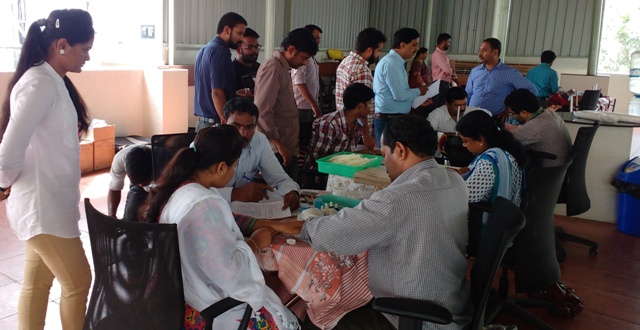 The last drive of the series of drives at Bangalore University was organised just before Diwali. This drive involved students from department of law. 43 units of blood were collected in this drive. The entire series of drives at BU have contributed to more than 300 units of blood in this series thanks to the tireless efforts of the student volunteers. A first blood donation drive was organised at Carat Media Services. Good publicity and enthusiasm from the company ensured 48 units of blood were donated. This was a part of a series of drives across the country from the company. A blood donation drive at Mashreq was organised after 11 months since their previous drive. 37 units of blood were collected within a small employee base of about 200 associates. Sankalp wishes to thank all these organisations for their valuable contribution in organizing blood donation drives at the time of need.
The last drive of the series of drives at Bangalore University was organised just before Diwali. This drive involved students from department of law. 43 units of blood were collected in this drive. The entire series of drives at BU have contributed to more than 300 units of blood in this series thanks to the tireless efforts of the student volunteers. A first blood donation drive was organised at Carat Media Services. Good publicity and enthusiasm from the company ensured 48 units of blood were donated. This was a part of a series of drives across the country from the company. A blood donation drive at Mashreq was organised after 11 months since their previous drive. 37 units of blood were collected within a small employee base of about 200 associates. Sankalp wishes to thank all these organisations for their valuable contribution in organizing blood donation drives at the time of need.
News and Updates from November 2015
Patrika Edition
Patrika Section
Disqus Comment
